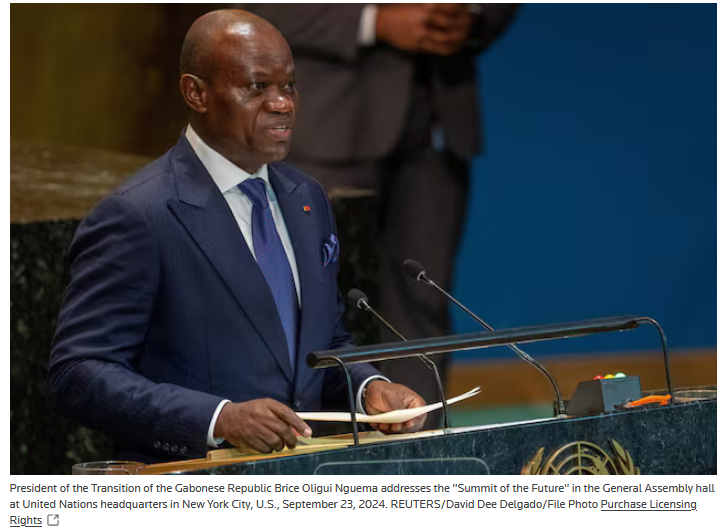Brice Oligui Nguema, Gabon’s junta leader, is leveraging the advantages of incumbency and a high-profile anti-corruption campaign in his bid to transition from military ruler to an elected president. The election is set for April 12.
The 50-year-old general seized power in an August 2023 coup that ousted President Ali Bongo, his distant cousin, ending 56 years of rule by the Bongo family. His takeover was part of a wave of military coups across West and Central Africa since 2020.
Although Nguema initially pledged a return to civilian governance, he officially declared his candidacy last month. He is widely seen as the frontrunner in the eight-candidate race, with his main rival being Alain Claude Bilie By Nze, the last prime minister under Bongo.

The coup was welcomed by many Gabonese frustrated by decades of economic disparity despite the country’s wealth as a leading African oil producer. In November, a new constitution championed by Nguema passed with 92% approval, further strengthening his position. His aggressive anti-corruption drive has also boosted his popularity.
“Gabonese tell themselves that someone who works with this much ardour is trying to transform things,” said Joseph Tonda, a sociologist at Omar Bongo University in Libreville, highlighting Nguema’s strong chances.
However, some analysts question whether the election will be truly fair. Rogers Orock, a Gabon expert at Lafayette College in the United States, cautioned that the true test of Nguema’s leadership would come after the election.
“The question is how far-reaching he will be willing to take these changes forward once he has fully transitioned from a military ruler to a civilian president,” Orock said.
Since taking power, Nguema has positioned himself as a crusader against corruption. Shortly after the coup, he publicly reprimanded government agency heads, ordering them to return stolen funds within 48 hours. His crackdown has led to the arrest of several corporate executives and testimony from officials before an anti-graft commission.
Yet questions remain about his own financial dealings. A 2020 investigation by the Organized Crime and Corruption Reporting Project (OCCRP) found that Nguema had purchased three properties in Maryland, U.S., for over $1 million in cash. He declined to comment on the report, stating that his private life should be respected.


